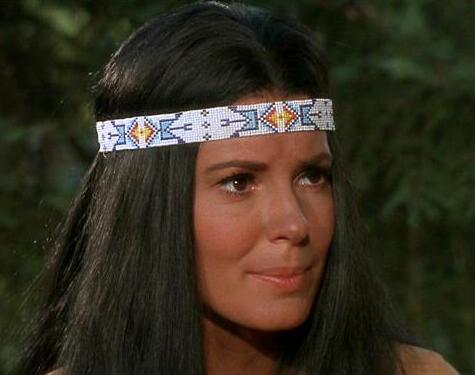
October 06, 2008
Spirituality = luxury in Star Trek
“A Cuchi Moya!”—Star Trek’s Native AmericansNative Americans clearly take up the function of spiritual mediator here. They thus fill a void in the image of Star Trek’s core group, which the program so insists on imagining as rational and forward-looking that there seems to be no room for developing a spiritual identity. This phenomenon allows two conclusions concerning Trek’s representational politics. First, it points to contemporary multi-culturalism’s need for spirituality, a need that apparently grows more urgent the more the multicultural core group stresses its own tolerance, which is a decidedly rational concept. Second, it illustrates how multi-culturalism is still incapable of fusing that spirituality and rationality. Spirituality needs to be represented by some ethnic Other, a role, Star Trek demonstrates, that Native Americans still fit exceedingly well. The fact that the rational self can never be spiritual, however, inevitably implies that the spiritual Other also cannot be rational. This conclusion not only imposes itself by conversion, but also because, otherwise, the Other would be superior to the member of the Eurocentric core group, a hierarchical distribution Star Trek’s evolutionary logic has certainly not intended. Traditional White images of the “Indian” silence any suspicions of aboriginal superiority by making sure to mention the natives’ impending genocide, a narrative element that not only produces the sentimental effect desired by the romantic genre in which the texts are typically written, but which also clearly states that spirituality is a luxury in the evolutionary struggle for existence. Star Trek, symptomatically, employs that element as well. In both episodes the Native Americans are under threat and need the help of the Federation in order to survive. In “The Paradise Syndrome,” the planet on which the tribe lives is about to be destroyed by an asteroid and only the Enterprise’s technological know-how can prevent the catastrophe. In “Journey’s End” Picard gets his only moments as the forceful and determined leader he usually is when he protects the Native Americans from the violent Cardassians under whose jurisdiction the tribe’s settlement now falls. Below: "Let me teach you about feelings, you big hunk of rational white man."


Subscribe to:
Post Comments (Atom)

No comments:
Post a Comment